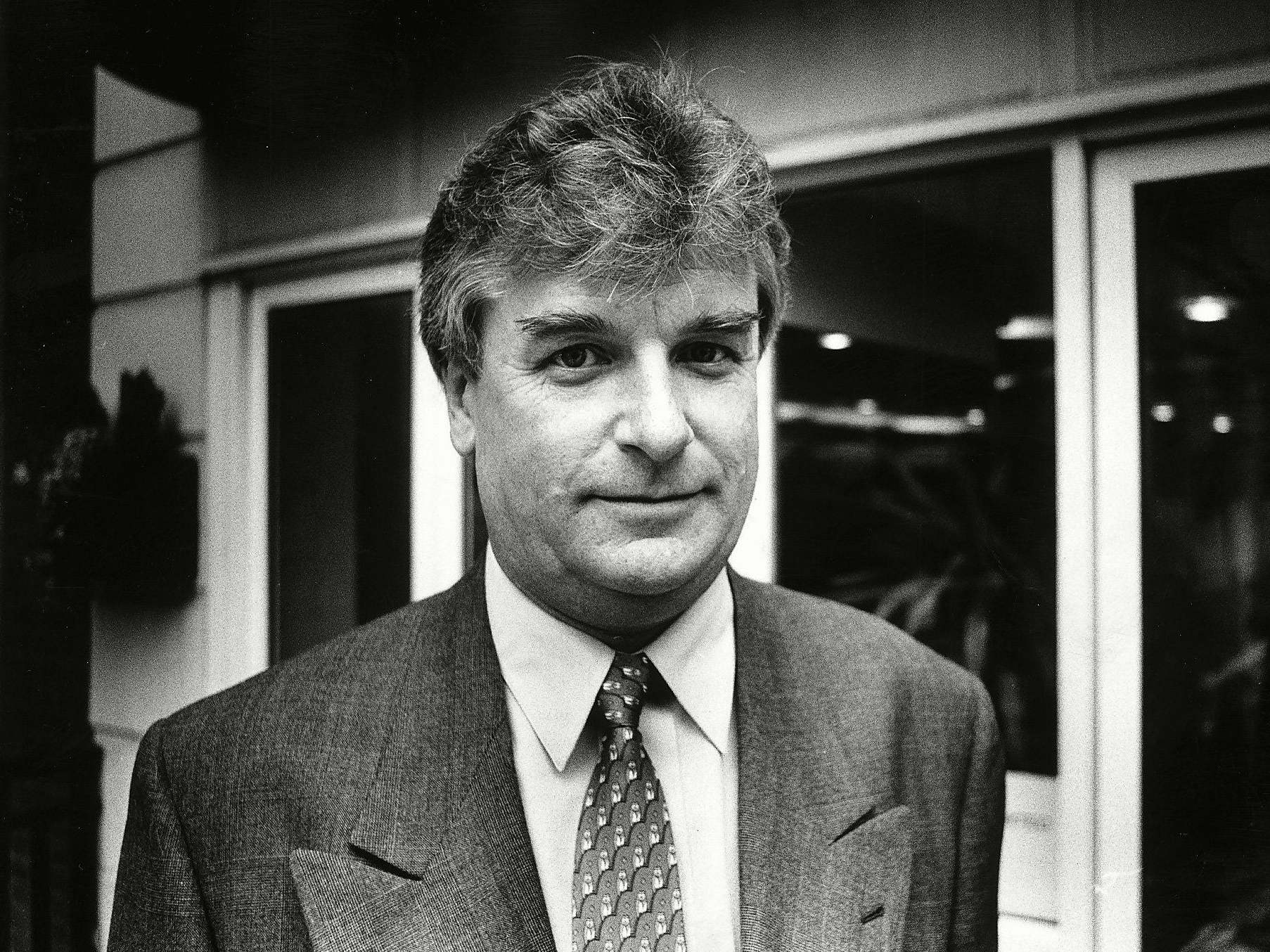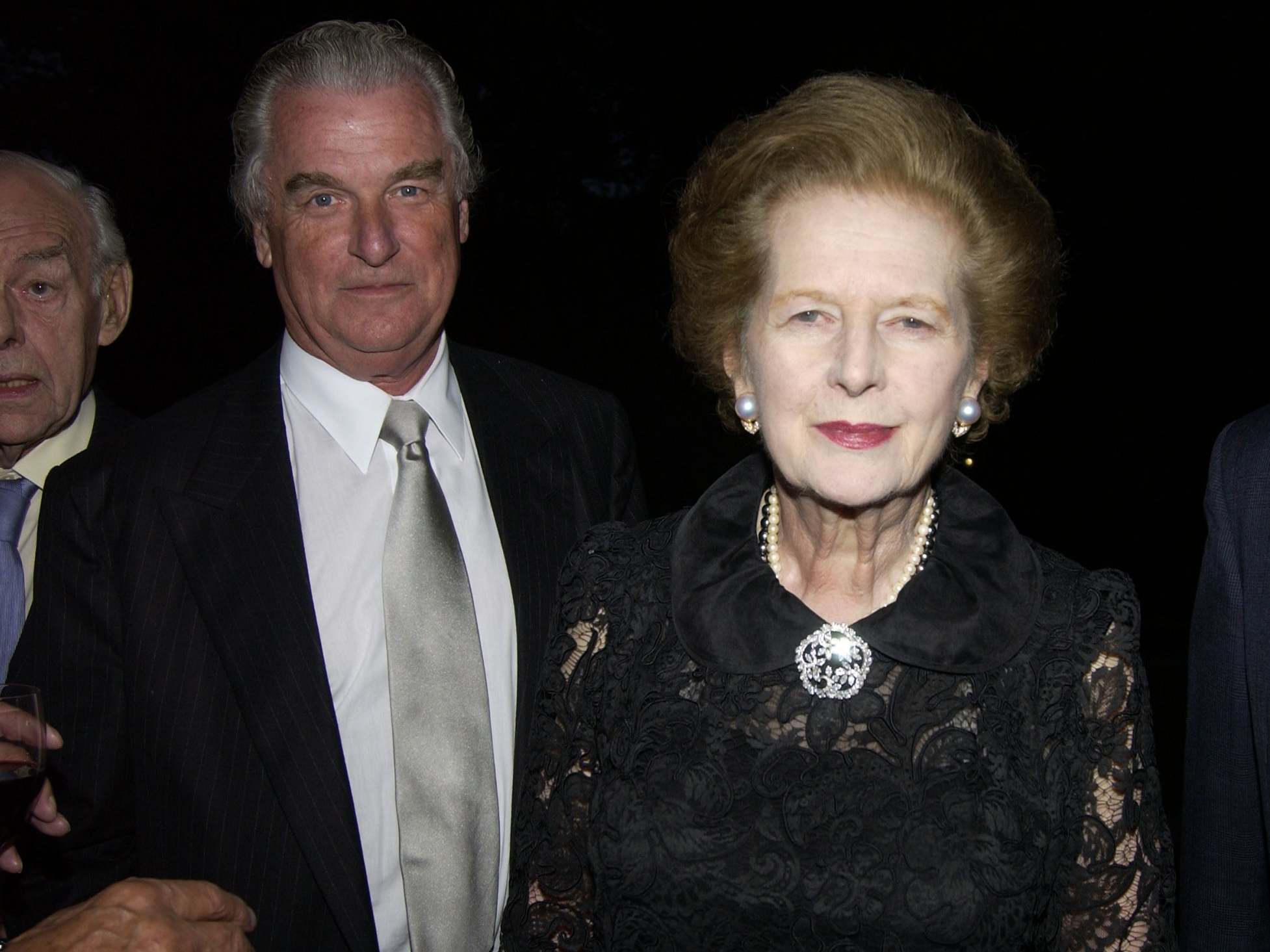Tim Bell: PR guru who helped Thatcher to win three elections
He was a close confidant of the former prime minister, and later forged a reputation representing the likes of Pinochet and Belarusian dictator Alexander Lukashenko

Tim Bell, who has died aged 77, was an advertising and public relations executive who famously acted as Margaret Thatcher’s spin doctor for a period spanning three successful general elections, and was later prominently involved in reputation management for a litany of highly controversial regimes and individuals.
Bell was born in 1941 in Southgate, London – not in Sydney, as he would later claim – the son of an Australian mother, Greta, and a Northern Irish salesman father, Arthur. After Arthur left the family four years later, Bell was raised by his mother and stepfather, a future Conservative mayor of Marylebone.
After leaving Queen Elizabeth Grammar School at the age of 17, Bell began his working life in the post room of ABC Television. Over the next decade, he worked for a number of advertising companies before joining the newly founded firm of Saatchi & Saatchi at the age of 29, where he rose to the position of managing director.
In the late 1970s Margaret Thatcher, then-leader of the opposition, took Bell into her inner circle and tasked Saatchi & Saatchi with helping her to win an anticipated general election. (She seems not to have been perturbed by his 1977 conviction, when he was fined £50 after masturbating in front of a bathroom window overlooking Hampstead Heath and exposing himself to passers-by).
The advertising campaign that was delivered – devised by Jeremy Sinclair and sold to Thatcher by Bell – centred around an image of a snaking dole queue beneath the slogan “Labour isn’t working”, and was credited by some in the Conservative Party with winning them a majority in 1979. It was later voted the “Poster of the Century” by trade magazine Campaign.
Thatcher and Bell, who had first met while canvassing for the Conservatives during the 1960s, began a long and fruitful partnership. Bell returned for the successful election campaigns of 1983 and 1987, even advising Thatcher on her dress and hairstyle, and in return he was frequently invited to spend Christmas with the Thatchers at Chequers, and knighted in 1991; a peerage was conferred in 1998. When Thatcher died in 2013, it was Bell who was tasked with breaking the news to the media.
In 1985, Bell switched his primary focus from advertising to PR, founding Lowe Bell, which would later become Bell Pottinger when co-founder Frank Lowe demanded that his name be removed.
Bell Pottinger’s work made Bell’s lasting reputation, for better or worse. While he protested that he would have been unwilling to represent an Adolf Hitler or a Saddam Hussein, his clientele – taking in the Chilean despot Augusto Pinochet, the Belarusian dictator Alexander Lukashenko, and various others accused of brutal human rights abuses – suggested the existence of a lesser class of tyrant that Bell was happy to indulge.

Rather incredibly, he once claimed that he only took their money because “they promised me they were going to stop being evil”, and washed his hands when, one after the other, each one failed to change his life’s course. Bell’s true feelings might be better illustrated by his comments to The New York Times late in life, wherein he cast morality not as an essential manifestation of humanity, but as a “job” more suited to the priesthood than his own industry.
In 2016 Bell resigned his post at Bell Pottinger amid scandal and acrimony. The firm had been taken on by the Gupta brothers, a pair of Indian billionaires with links to South African president Jacob Zuma. That year South Africa’s former public protector Thuli Madonsela released a report claiming extensive corruption involving the Guptas, and accusing Bell Pottinger of engaging in a “hateful and divisive campaign to divide South Africa along the lines of race”, launching the country into a political scandal.
Bell claimed that he had resigned over the Gupta deal, having had his concerns ignored. Bell Pottinger roundly rejected that version of events.
The company’s demise was ultimately precipitated by a disastrous interview given by Bell to Kirsty Wark on the BBC’s Newsnight after his resignation. As Bell attempted to distance himself from the Gupta affair, Wark refuted each claim by quoting emails sent by Bell himself, all while his telephone rang off repeatedly in the background. The surprising incompetence on display led many to wonder if this was a deliberate act of sabotage – Bell’s parting shot to his former colleagues.
Whether that was to credit an improbable intelligence to Bell – who had himself declared that his only truly remarkable talent was his charm, and whose sharpness may simply have been dulled by illness and age – it fed into the legend of the Machiavellian puppet-master, always one step ahead of the game.
He is survived by his third wife, Lady Jackie, and two children from his second marriage.
Tim Bell, Baron Bell, advertising and PR consultant, born 18 October 1941, died 25 August 2019
Join our commenting forum
Join thought-provoking conversations, follow other Independent readers and see their replies
Comments